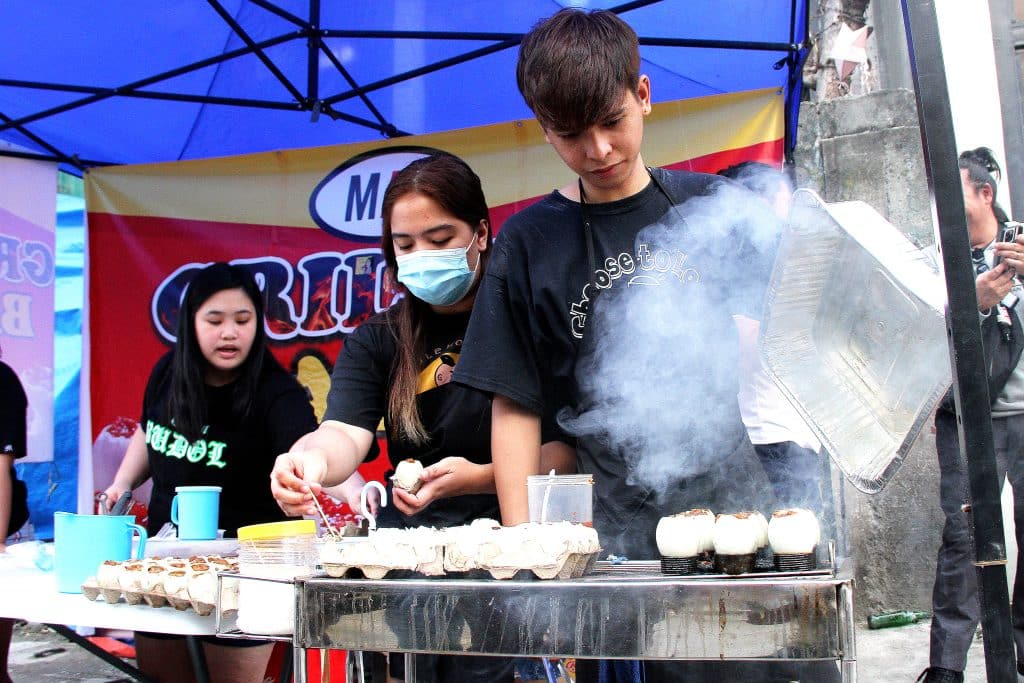The craze of the Filipinos about ‘Grilled Balut’ continued and many businesses decided to sell the said street food because of its continuous popularity.
But some netizens revealed that the said exotic street food was producing Hydrogen Sulfide, a highly toxic gas that may irritate the respiratory tract and other parts of the body.
The long-term impact of Hydrogen Sulfide may also cause headaches, reduced attention span, and motor functions.
However, the Philippine Association of Food Technologists said that people should not worry to the amount of Hydrogen Sulfide present in grilled balut.
“Although this post was meant to inform consumers about the associated health risk, it seems to be misleading. While the explained science in the post is true, the conclusion was taken out of context.” the group statement reads.
“The proteins of the egg whites contain sulfur that reacts with hydrogen during the heating of eggs, resulting in the formation of H2S. Although a known toxic gas, especially during exposure at moderate to high concentrations, H2S is released in such small amounts that it cannot pose any health risks. For additional context, the highest H2S concentration that can be produced by an egg is around 0.2 ppm which happens when the egg is already rotten. Meanwhile, the allowable exposure limit for H2S is 20 ppm and must reach a concentration of 100 ppm in order to cause dangerous effects on health and life.
“Additionally, as the heating prolongs, H2S goes inwards towards the egg yolk due to the decreased solubility of the egg white. This gas reacts with the iron subsequently released from the yolk during heating, forming iron sulfide. This dark-greenish tinge observed on the surface of the yolk due to overcooking may taste and appear unappealing, but it is not considered detrimental to human health.”
The post of the group already reached 5,300 shares as of writing.

